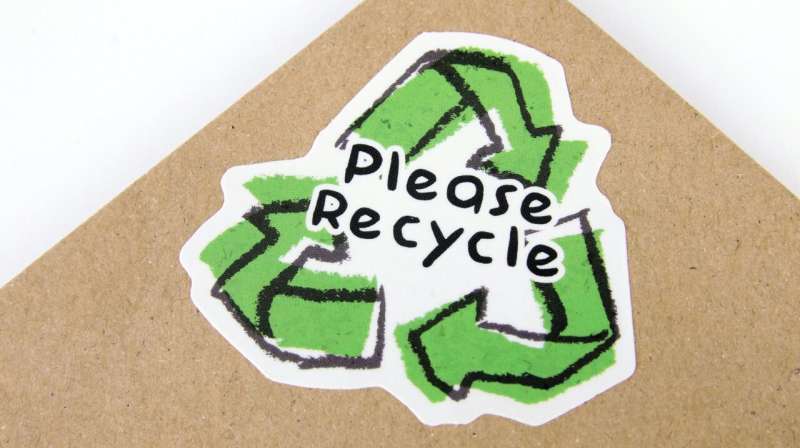This article has been reviewed according to Science X's editorial process and policies. Editors have highlighted the following attributes while ensuring the content's credibility:
fact-checked
trusted source
proofread
Study analyzes the benefits of recycled content claims amid supply uncertainty

As municipalities launch lofty environmental initiatives such as New York City's goal of sending zero waste to landfill by 2030, University at Buffalo School of Management researchers have developed a new model that optimizes the costs and benefits of using recycled materials in manufacturing.
Available online ahead of publication in the European Journal of Operational Research, the model provides a framework for manufacturers to find the optimal recycled content claim given the sourcing and inventory costs of post-consumer content.
"When you pick up a coffee cup and see a message about its post-consumer content, that's an incentive that drives demand because the consumer looks at it and says 'Well, that's a greener product so I'm going to buy it,'" says the study's lead author Ananth Iyer, Ph.D., professor and dean of the UB School of Management. "But there isn't a reliable supply of recycled materials and using recycled content can be more expensive than using new materials, so manufacturers need to find the balance."
To develop the model, the researchers studied the European production of glass wool, an insulation produced from a mix of natural sand and recycled glass. They focused on Europe because there is a large amount of data on the recycling rates of each nation and recycling rates are high, but the logistics of moving consumer waste between countries is a challenge.
The study found that manufacturers can increase their recycled content claims when they use a shorter time period for strategic planning, but attempts to create artificial demand for recycled products without a stabilized, reliable supply of recycled materials can decrease those claims.
The researchers say finding market-based incentives like recycled content claims are key to preventing landfills from reaching capacity.
"We have all this post-consumer waste in the U.S. with no overseas markets, so we need to find domestic solutions for this recycled material to avoid diverting it to landfill," says study co-author Aditya Vedantam, Ph.D., assistant professor of operations management and strategy in the UB School of Management. "Voluntary approaches can work if you provide manufacturers with the right incentives, such as making it cheaper to collect recyclables, or creating demand-side incentives by encouraging greener procurement."
More information: Ananth V. Iyer et al, Recycled content claims under demand benefit and supply uncertainty: Multi-period model and application to glasswool insulation, European Journal of Operational Research (2023). DOI: 10.1016/j.ejor.2023.01.014
















